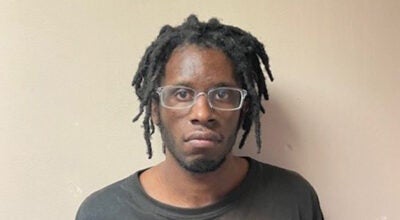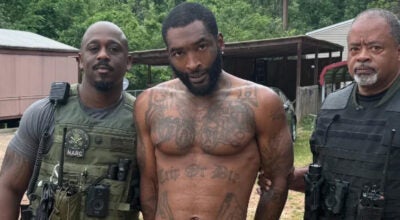Mississippi deputy lauded for saving life with quick thinking, skill set
Published 5:41 am Saturday, July 17, 2021
At just about 2 a.m. May 27, Cameron Hickey received a call regarding a teenage girl in distress.
Hickey, a Lowndes County sheriff’s deputy, responded as quickly as possible to a remote part of the county, where he found the girl unresponsive — a victim of an apparent drug overdose. Though he’s only been a deputy for about a year, his experience as an emergency medical technician kicked in, and he began administering rescue breathing for about 20 minutes until paramedics arrived. As a result, the victim ultimately recovered from the overdose.
“Had it not been for Hickey’s quick thinking and his actions, the outcome could have been totally different,” Sheriff Eddie Hawkins said.
Lowndes County Board of Supervisors publicly recognized Hickey’s heroics last week during its regular meeting.
Hawkins, speaking to The Dispatch, also doted on his deputy.
“He was a good hire,” Hawkins said of Hickey. “I wish I had 50 more like him.”
In reality, as far as EMT-certified deputies, Hawkins has four. He’s already working to expand on that.
“We have a couple more deputies that are scheduled to get further training for emergency response,” Hawkins said. “When they get back, they can train their colleagues to up their game.”
Still, all deputies are trained per the state board of minimum standards for peace officers, which includes administering first aid and proficiency at conducting a rescue operation. To graduate from the police academy’s program, candidates must demonstrate proficiency (average score of at least 80 percent) in first aid and cardiopulmonary resuscitation (CPR), among other skills.
“Our officers have training in resuscitation, but are not required to have all the training for emergency medical technicians (EMTs),” he said.
Hickey’s EMT experience spans stints in Starkville and as an ambulance crew member at Baptist Memorial Hospital-Golden Triangle.
He said it appeared the overdose was accidental, and knew the clues to look for to help him decide what to do for the best possible outcome — keeping the victim alive and restoring consciousness.
Hickey’s quick thinking and experience were especially helpful given the incident’s rural location, Hawkins said.
Medical calls in rural areas are often answered by volunteer firefighters, he said, so a first responder often has to be more resourceful as they wait longer for backup.
“During night hours, volunteers are going to have to get out of bed, which takes more time to get dressed and hit the road,” Hawkins said.
Looking back on the experience, Hickey doubted that the victim had a grip on what she was doing.
“She didn’t comprehend what happened to her,” he said. “Sometimes people have to hit bottom to get turned around.”
Hickey has had no further contact with the victim since the incident, but hopes that she will learn from it. All told, Hickey is satisfied that he responded to a call for help and performed his duty.
“It was the right thing to do,” he said simply. “It’s what I signed up to do.”






